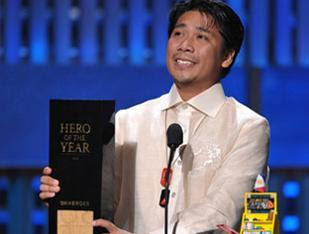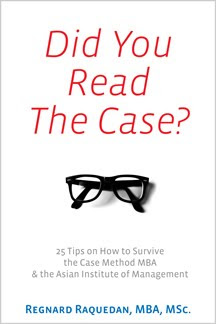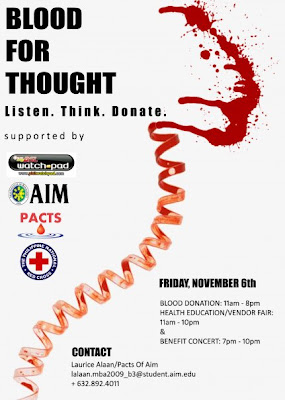Book for AIM MBAs: Did You Read The Case?
It's been a while since my last update, but I'd like to plug my book: Did You Read The Case? 16 Stories on How to Get Into the Asian Institute of Management and Survive the Case Method MBA . The book is exclusively available at the Amazon Kindle store and priced at $0.99 if you're in the US, and $2.99 if you're in the Philippines. Why the price difference? Well, we'll have to thank Philippine tax laws for that. In any case, the book is a project that stemmed from my MBA days at the Asian Institute of Management up to early this year. With the e-book boom, distributing the book electronically would be the practical way to go. As for the book contents, It's intended for aspiring MBA students who want to get into AIM and current MBA students who are struggling to deal with the rigors of the program.The main topics of the book include getting admitted , starting the classes , dealing with pressure , grappling with grades , and rising above the challeng...












